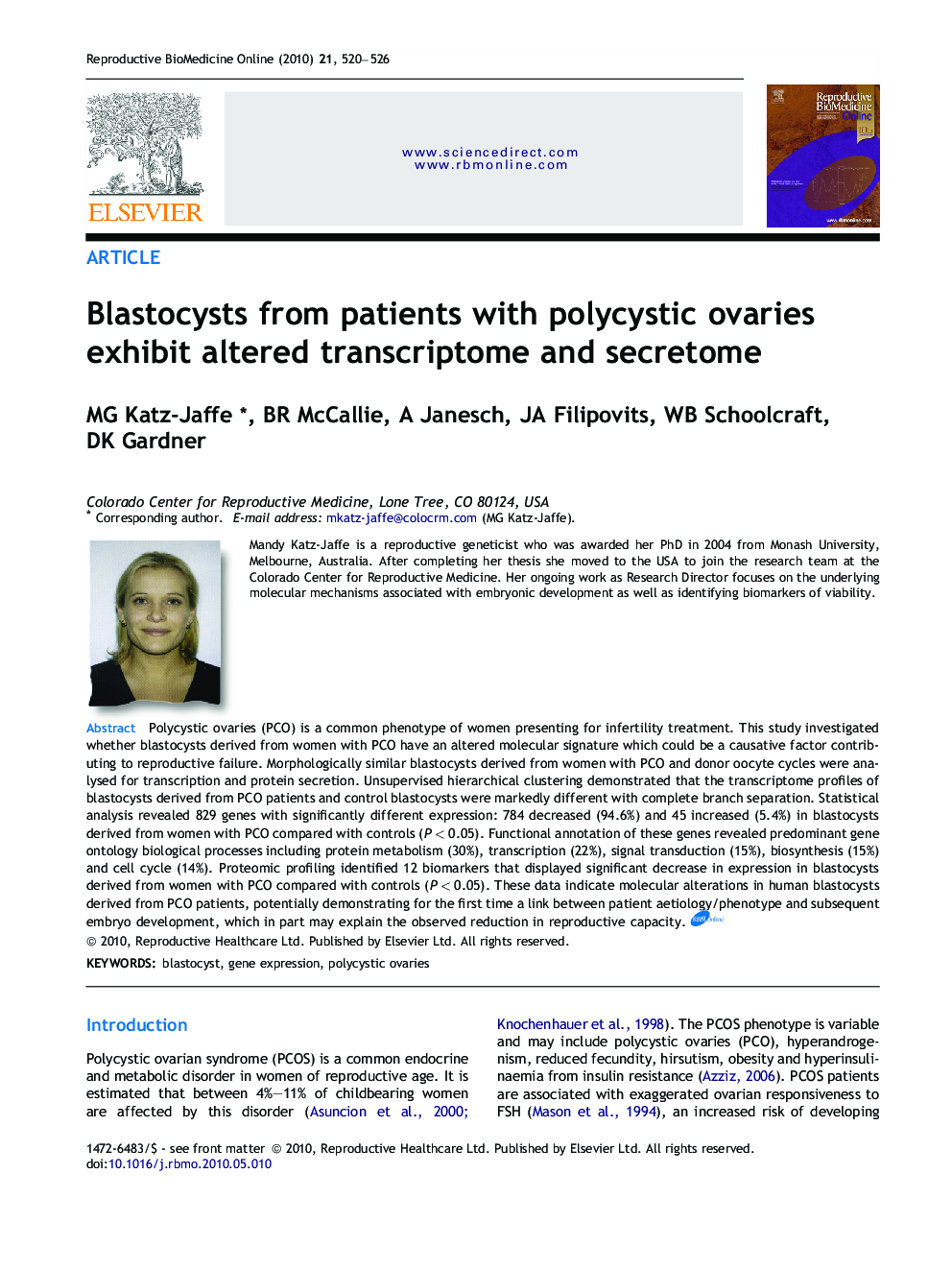| Article ID | Journal | Published Year | Pages | File Type |
|---|---|---|---|---|
| 3971578 | Reproductive BioMedicine Online | 2010 | 7 Pages |
Polycystic ovaries (PCO) is a common phenotype of women presenting for infertility treatment. This study investigated whether blastocysts derived from women with PCO have an altered molecular signature which could be a causative factor contributing to reproductive failure. Morphologically similar blastocysts derived from women with PCO and donor oocyte cycles were analysed for transcription and protein secretion. Unsupervised hierarchical clustering demonstrated that the transcriptome profiles of blastocysts derived from PCO patients and control blastocysts were markedly different with complete branch separation. Statistical analysis revealed 829 genes with significantly different expression: 784 decreased (94.6%) and 45 increased (5.4%) in blastocysts derived from women with PCO compared with controls (P < 0.05). Functional annotation of these genes revealed predominant gene ontology biological processes including protein metabolism (30%), transcription (22%), signal transduction (15%), biosynthesis (15%) and cell cycle (14%). Proteomic profiling identified 12 biomarkers that displayed significant decrease in expression in blastocysts derived from women with PCO compared with controls (P < 0.05). These data indicate molecular alterations in human blastocysts derived from PCO patients, potentially demonstrating for the first time a link between patient aetiology/phenotype and subsequent embryo development, which in part may explain the observed reduction in reproductive capacity.Lay summaryPolycystic ovaries (PCO) are common among women of reproductive age and, in particular, among women presenting for infertility treatment. This study examined embryos derived from women with PCO in an effort to better understand the underlying mechanisms involved with this phenotype. Embryonic gene expression and protein secretion were investigated and directly compared between embryos derived from women with PCO and embryos derived from donor oocyte IVF cycles (fertile controls). Results indicated significant differences between the two groups for both gene expression (n = 829 genes) and protein secretion (n = 12 proteins). Further investigation into the function of these differentially expressed genes revealed important affected biological processes including protein metabolism (30%), transcription (22%), signal transduction (15%), biosynthesis (15 %) and the cell cycle (14%). These data reveal molecular modifications in embryos derived from women with PCO who are undergoing infertility treatment. Therefore, potentially demonstrating a link between patient phenotype and subsequent embryo development may, in part, elucidate the underlying mechanisms associated with observed reduction in reproductive capacity.
